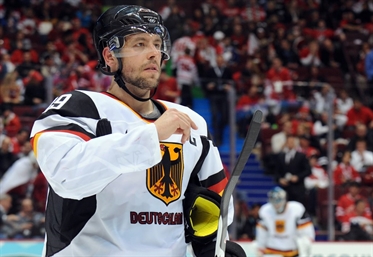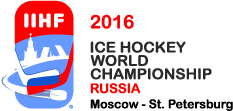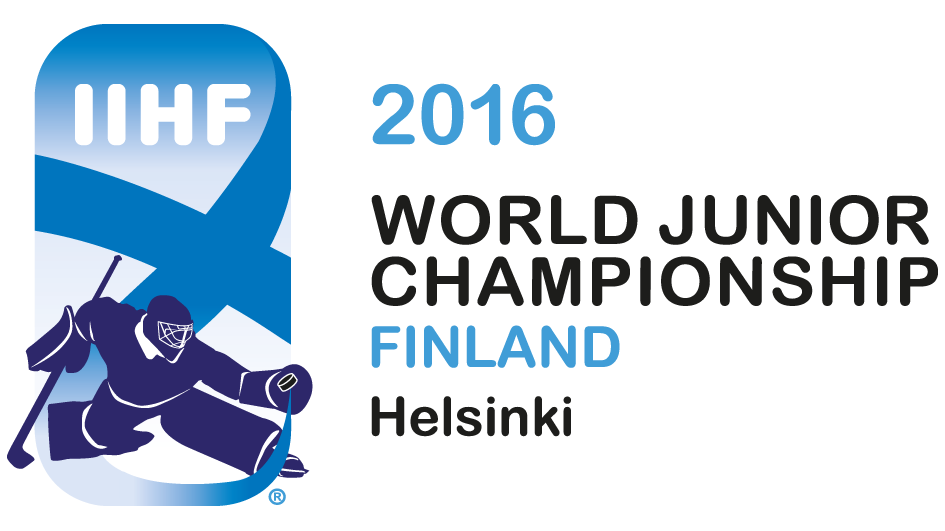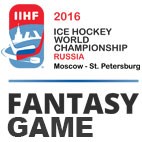German icon takes the helm
German icon takes the helm
Sturm faces challenges with national team

 Marco Sturm’s last big event on the international stage with Germany was as a player at the 2010 Olympic Winter Games in Vancouver. Photo: Matthew Manor / HHOF-IIHF Images
Marco Sturm’s last big event on the international stage with Germany was as a player at the 2010 Olympic Winter Games in Vancouver. Photo: Matthew Manor / HHOF-IIHF Images
With widespread changes being experienced at all levels nationwide, the German Ice Hockey Association has also hired a new general manager and head coach of the men's national team. The key personnel is none other than former long-time NHLer Marco Sturm, clearly one of the most recognizable international ice hockey names coming out of Germany.
Having never coached at the pro level to date, Sturm is nonetheless one of the most internationally experienced former players hailing from Germany, having represented his country at no less than 13 international tournaments in a career spanning 19 seasons.
Of those 19 seasons, 14 were spent in the NHL, seven and a half of which with the San Jose Sharks, the franchise that drafted him 21st overall in the 1996 NHL Entry Draft.
With seven seasons of 20 or more goals, and 11 overall seasons of 10 or more goals, Sturm is Germany's all-time leading NHL scorer.
Being looked at to bring and pass along that treasure of experience to the German national team program, Sturm has been a busy man since August of this year and continues to prepare for his tasks throughout this winter and heading into a critical phase of Olympic qualification.
He took a few moments out of his busy schedule to answer a few questions for IIHF.com.
Coach Sturm, for the past few months you've been serving as the head coach and general manager of the German men's national team in unison. There's no doubt about how recognized you were internationally as the face of German ice hockey while you were an active player. But that's not exactly the case when it comes to being the ‘coach’. How did your being named as head coach and general manager come about?
To be honest, it's my son's fault that I'm a coach. He plays ice hockey in Florida and he once said, “Dad, can't you coach the practice?!” Well, I did and then I got around to doing it more and more and then went about getting all the coaching licences you can in the USA. That's when I realized that I wanted to take this route. So once the call came from Franz Reindl, it all came about very quickly.
You and your family appear to still be living in the USA. What's your travel schedule going to be looking like as you go about conducting your new duties?
That's right, my family and I continue to live in Florida. Both of our kids go to school there. I'll be heading back and forth to Germany. In September, I spent two weeks in Germany and I’m back for the phase leading up to the Deutschland Cup. The plan is that I'll be in Germany every four to five weeks.
In recent years, the German Ice Hockey Association had noticed that there are certain difficulties that come with having one person be both the head coach and general manager. Nonetheless, you'll be asked to face those difficulties by doing just that. What will your biggest challenges be in combining the tasks of these two positions?
I am the head coach and general manager of the men's national team, but I view myself first and foremost as the coach of the men's national team. That's what I wanted to. I'm on the ice and in the locker room. That's also what really intrigues me about the work at hand. As a general manager, it's my job to maintain contact with for example the players so as to guide the team and its roster together and running discussions “off” the ice.
From an international vantage point, many ice hockey pundits were very excited about your being named Germany's head coach. Still, there are those asking just how wise it is to name someone to such an important position when it's his first ever official head coaching job in professional hockey. What is your opinion on this?
It is correct that I don't have a whole lot of experience as a head coach, but there are few in Germany who have as much ice hockey experience as I do. I know my way around the hockey world and spent a long time playing in the world's best league – that's something no-one can take away from me. In addition, I've had the pleasure and fortune to have played under the guise and leadership of many good coaches. I'd now like to pass along everything they gave me to the players I'll now be coaching.
Last season saw the men's U20, U18, and women's national teams all get relegated out of the world's top classes. The men's team enjoyed a subtly successful World Championship in Prague, at least safely retaining the class. How do you view the state of the nation in German ice hockey?
This past season naturally wasn't very successful when you look at the results of the various national teams. But there's generally a spirit of optimism that can be felt in the German ice hockey landscape. The new steering committee surrounding President Franz Reindl has initiated a whole bunch of things right from the grassroots and we're noticing that the various clubs around the country are joining in and are ready to make fundamental changes to better develop our current and future players. It's all about looking forward. What's been in the past is now a thing of the past.
Different results than those collected by your predecessor need to be achieved. What will and needs to change and improve under ‘Head Coach Marco Sturm’?
To begin, the players have to be ready to play with pride again. They need to be extremely proud to have the honour of putting on the national team jersey. This condition has become a bit lost in recent years and it's my absolute goal to bring this back.
What expectations do you have of the players who are now going to come into question for your desired national team? Can the international ice hockey world look forward to players who are currently active outside of Europe, primarily in North America, wearing a German jersey, most especially at the World Championship?
As I stated before, I'd like to bring back that pride of playing for the national team. I'm naturally also in regular contact with the candidates who are playing abroad. I've received positive feedback from each and every one of them. The clear-cut message is that they are all ready to play for Germany.
In players such as Tobias Rieder, Leon Draisaitl, and Frederik Tiffels, it's looking like it's time to be incorporating a new generation of young, internationally successful players. How important and realistic do you find this bridge-over from older to younger players for a positive progression within the national team?
I feel this is enormously important. Players like Rieder and Draisaitl are hungry and want to give their best no matter what the cost. That kind of thing becomes very contagious. And on the other hand, these young guys can learn quite a bit from the experienced players as well.
What is the federation's ‘POWERPLAY 26’ program and what benefits will German ice hockey reap from it over the long run?
The POWERPLAY 26 concept has the goal of ensuring that the German national team is capable of competing by 2026. In the past, we've been sluggish when it's come to working on the right things and in the right areas. We've somewhat neglected our developing kids. With the POWERPLAY 26 concept and the direct work at the youngest levels right in the many clubs, we're doing our part in doing more to teach our kids the correct things right from the beginning. The concept is geared towards working on fundamentals and that's something we are in desperate need of in the German ice hockey landscape.
Your brother-in-law Christian Künast is simultaneously taking over the reigns as the coach of the U20 national team. Does your position as the general manager include you being in regular touch with Künast and will you, in general, be having any influence on the plans for Germany's U20 and U18 teams?
Christian and I are in touch daily. He'll be a part of the coaching staff for the national team as well, just as I'll be part of the coaching staff for the U20 team. Although I'll be supporting Christian in an administrative sense, he'll be absolutely in charge as the federation's youth coach. Our common work together and constant contact are extremely important.
What are your realistic short-term and long-term goals with the national team, which is not currently ranked amongst the 12 best in the world?
We want to achieve the best possible position at the World Championship in Russia next spring and use that to improve our world ranking in the standings. An enormously important milestone is qualifying for the Winter Olympics in 2018.
Have you been thinking much about becoming a coach once your active career was over? Are there certain coaches in the world of ice hockey who serve as your coaching role model?
Not really. I've always thought that I didn't really want to be a coach, just like Uwe Krupp didn't want to be back in the day. But now I'm happy that it's come to this. In Germany, I must point out Hans Zach and Uwe Krupp as my coaching idols, although they are naturally very different in many ways. In America, both Claude Julien and Darryl Sutter definitely come to mind. Particularly Sutter, who's honesty showed me how you're really supposed to play ice hockey and how you're supposed to deal with and treat players, even if it was sometimes very direct and not always pretty. He was direct and always expressed his true opinion. He was probably the best coach I've ever had.
To conclude, we're looking for a bit of a ‘bold prognosis’: Will the international ice hockey community have the opportunity to see the German national team at the next winter Olympics?
Yes! That is our clear-cut goal.
Back to Overview














































































